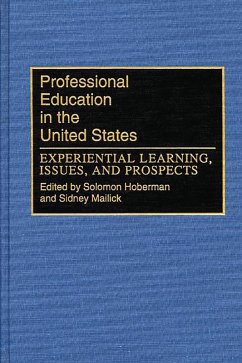Believing that the primary purpose of professional education is to prepare practitioners, the authors consider variables that affect professional practice. Emphasis is the key role and techniques of experiential education for effective transfer of learnig to practice in medicine, law, social work, and management. Other variables that impact cost and quality of services include cost and length of professional education; specialization, selection, and promotion of faculty; role of research; use of paraprofessionals; and assessment of professional education. Conclusions go beyond education, for the four professions discussed in detail, to challenge current objectives and practices in all professional education. The major conclusion is that professional learning for practice needs to be improved and points to the importance of utilizing and developing experiential education as the key learning approach. Other counterproductive effects of current professional education practices identified are: a tendency to consider isolated problems and ignore clients' needs, inadequate continuing graduate professional education, oversupply of professionals in many areas, failure of many professionals to keep up with changing theory and practice, and overly expensive and poor research as the result of using the same institutions for both. Corrective action is suggested in each case.
Bitte wählen Sie Ihr Anliegen aus.
Rechnungen
Retourenschein anfordern
Bestellstatus
Storno









